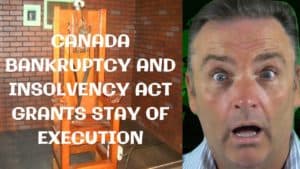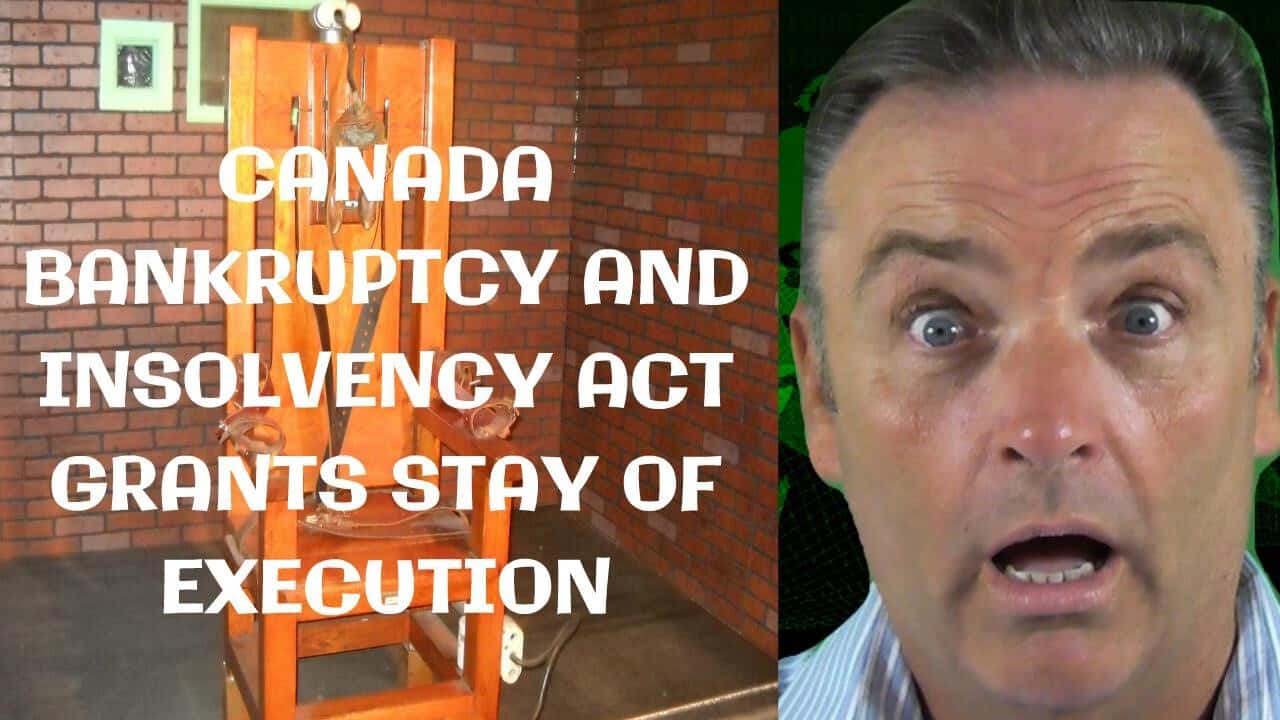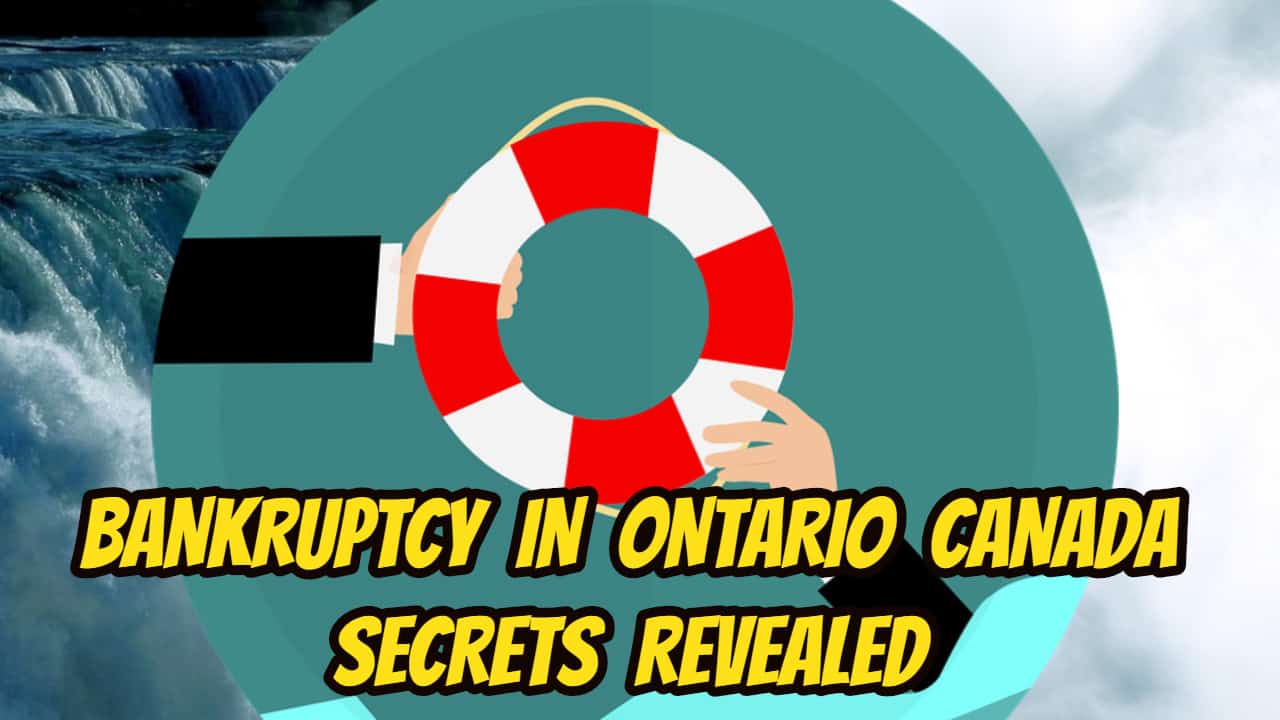canada bankruptcy and insolvency act
Canada bankruptcy and insolvency act introduction
The Canada Bankruptcy and Insolvency Act is a federal statute. It attempts to balance the rights of an insolvent debtor with the rights of creditors to get paid. One of those balancing acts is that when you file under the statute, the person filing is granted a stay of proceedings. What that means is that debt collection and enforcement activities are stopped and cannot continue without the prior permission of the Court.
I recently read a very interesting decision of the Ontario Superior Court of Justice out of Ottawa, ON. What that case also shows is that if the insolvent and the then bankrupt person just told the truth, he would have been much better off.
Before getting into the actual case, there are a few questions that I am regularly asked that I would also like to answer. I think those answers will also help with understanding this case.
What is the purpose of the Canada Bankruptcy and Insolvency Act?
The main purpose of the Canada Bankruptcy and Insolvency Act is to help the honest but unfortunate debtor. It is designed to allow a person or a company to get financial rehabilitation through financial restructuring. It also allows a person the same opportunity to shed their debts through bankruptcy.
As mentioned above, at the same time, the rights of the creditors to get paid are also balanced. So that is why in a true restructuring, the creditors must receive more money than if the person or company went bankrupt. That is also why in a bankruptcy, the debtor must give up all their assets to the licensed insolvency trustee (formerly called a bankruptcy trustee) (Trustee). The only assets not given up are those for which there is an exemption under either provincial or federal law. That is also why there is the concept of surplus income payments in a personal bankruptcy filing.
The presumption is that the debtor is honest but unfortunate. That is both before and during their insolvency process. As you will see from the case description below, the debtor was not honest and it is his lies that got him into trouble.
The insolvency process begins with the requirement that in order to obtain relief from debt, the insolvent debtor will be truthful. That is why a filing is initiated by a sworn statement of affairs.
Is insolvency a criminal offence?
As you may recall from some of my prior Brandon’s Blog posts, being insolvent is a financial condition. It is that:
- your debts are greater than your assets;
- if you liquidated your assets there would not be enough money to pay off your debts in full; and
- you have generally ceased paying your debts when they come due.
So becoming insolvent is not a criminal offence.
Similarly, filing for either a consumer proposal, Division I Proposal or for bankruptcy is not a criminal offence. However, if you really are not the honest part of the honest but unfortunate person the Canada Bankruptcy and Insolvency Act is designed to help, you must seek the advice of a lawyer before filing anything.
There are also certain offences a person could commit under the actual bankruptcy statute. Some are quasi-criminal in nature. Again, if you think you are in trouble, you need the advice of a lawyer.
canada bankruptcy and insolvency act
Now for the case – Re Brennan, 2019 ONSC 4712 (CanLII)
On August 8, 2019, this decision of The Honourable Mr. Justice Kershman was released. The case involved the bankruptcy of Mr. Lawrence Brennan (Mr. Brennan) and his creditor, Mr.André Robert (Mr. Robert).
Mr. Robert made an application to the Court to lift the stay of proceedings stopping Mr. Robert from enforcing his judgment against Mr. Brennan’s asset. Mr. Robert said that Mr. Brennan supplied incorrect and deceptive details relating to the presence of a Registered Retirement Savings Plan (RRSP) throughout a judgment debtor exam on July 10, 2018.
Mr. Robert brought this motion for:
- An Order stating that the stay of proceedings according to sections 69 to 69.31 of the Canada Bankruptcy and Insolvency Act, R.S.C. 1985, c. B-3 does not apply in regard to Mr. André Robert, yet is restricted to the seizure of Mr. Brennan’s RRSP with the Lawyers Financial Investment Program.
- An Order proclaiming that Mr. Robert will be qualified to proceed with his enforcement process for repayment of his judgment, plus interest and the cost of enforcement restricted to Mr. Brennan’s above-noted RRSP.
- Indemnification for the costs of this motion.
Mr. Robert’s argument was that, had it not been for Mr. Brennan’s bankruptcy, there would be no stay of proceedings and he would have the ability to take Mr. Brennan’s RRSP according to the Execution Act, R.S.O. 1990, c. E.24.
The honest but unfortunate debtor
Mr. Robert is a lawyer. Mr. Brennan and others sought and obtained his legal advice. Mr. Robert then billed Mr. Brennan and each of his colleagues for the legal work. They thanked Mr. Robert by not paying him.
Mr. Robert went to Court to claim his legal fees and won. He then sent the Sheriff to seize any assets that could be found belonging to the defendants, including Mr. Brennan. That exercise awarded Mr. Robert with the princely sum of just under $65. So, Mr. Robert then notified Mr. Brennan that he was required to attend a judgment debtor examination. The purpose of this exam was for Mr. Brennan to answer questions, truthfully under oath, as to the nature, extent and location of all of his assets.
Throughout the judgment debtor exam, Mr. Robert asked Mr. Brennan if he possessed any kind of RRSPs. Mr. Brennan said, under oath, that he did not. This response was substantiated by Mr. Brennan’s written financial form, which was finished by Mr. Brennan as a component of the examination under oath.
It turns out that Mr. Brennan lied under oath to Mr. Robert. Seventeen days later, Mr. Brennan filed for bankruptcy. In his sworn statement of affairs completed as part of his bankruptcy filing, Mr. Brennan attested that he owned an RRSP in the amount of $13,017.00 held by the Lawyers Financial Investment Program.
Mr. Brennan may have been unfortunate, but prior to his assignment in bankruptcy, he was not honest.
Seizure of an RRSP – in bankruptcy and no bankruptcy
The evidence before the Court was that there were no contributions to Mr. Brennan’s RRSP in the 12 months prior to his date of bankruptcy. There was also evidence that there was no insurance element to the RRSP either.
This is important for 2 reasons:
- If there is an insurance element to an RRSP, and the beneficiary is what is called a “designated beneficiary”, normally a spouse, parent, child or grandchild, then the RRSP is exempt from seizure under Ontario law.
- In bankruptcy, an RRSP is exempt from seizure under federal law. The only amount that can be recouped by a Trustee is any contributions made to the RRSP within the 12 months prior to the date of bankruptcy.
So in this case, none of those conditions existed. The issue before the Court was because under Ontario Law, absent a bankruptcy, a judgment creditor can execute against a defendant’s RRSP. In other words, if there is no bankruptcy, in Ontario, the judgment creditor can seize the RRSP.
canada bankruptcy and insolvency act
Mr. Brennan’s defence
Mr. Brennan represented himself in Court. His defence consisted of that he:
- Did not understand that he had any RRSPs in his name.
- Informed Mr. Robert around one month prior to the examination that he would certainly need to go bankrupt.
- Needs the Court to have pity for his circumstances.
Certainly not the most compelling defence in the circumstances.
The Court agrees with Mr. Robert
The Court went through an analysis of the Canada Bankruptcy and Insolvency Act as well as the relevant Ontario laws. The Court concluded that:
- The RRSP currently in this bankruptcy is exempt from seizure but was available to be seized before the bankruptcy. If Mr. Brennan had been truthful in his examination under oath, Mr. Robert would have seized the RRSP through the Sheriff in enforcing his judgment.
- Therefore, the Court lifted the stay according to section 69.4 of the Canada Bankruptcy and Insolvency Act to be equitable so that Mr. Andre can seize them.
- To alleviate any kind of tax obligation effects, the Court ordered that 30% of the RRSP should be subtracted at source and also to the Canada Revenue Agency to the credit of Mr. Brennan’s current year income tax account. The remaining amount of the RRSP is to be paid to the Sheriff of the Judicial District of Ottawa, who will disperse it in conformity to the Execution Act and the Creditors Relief Act.
The moral to Mr. Brennan’s story
Although the Court decision does not say it, Mr. Brennan must have not obtained any legal advice before participating in the judgment debtor examination. Any lawyer hearing his story would have told him exactly what I tell every person who comes to my office to talk about an insolvency proceeding. Be honest and truthful.
Mr. Brennan did a really dumb thing. Part of the evidence that came out in Court is that he went to see the Trustee who did his bankruptcy filing six weeks prior to the July 10, 2018 judgment debtor examination to discuss his financial situation. He must have talked about the RRSP then.
If Mr. Brennan was honest and truthful at his judgment debtor examination, he could have filed for bankruptcy before the Sheriff managed to seize his RRSP. In that case, Mr. Brennan would have told the truth and his RRSP would have been exempt from seizure in his bankruptcy.
So instead of telling the truth and keeping his RRSP after bankruptcy, Mr. Brennan lied and therefore lost his RRSP, notwithstanding his bankruptcy.
That is the moral of Mr. Brennan’s story. By telling the truth and then becoming the honest but unfortunate debtor, the Canadian bankruptcy system will protect you.
Canada Bankruptcy and Insolvency Act summary
Are you an honest but unfortunate person in financial trouble? Have you run your company in an honest fashion but through various circumstances, the company’s debts are greater than its assets. Is there just not enough cash to pay all the bills?
If so, you need to call me today. As a licensed insolvency trustee (formerly called trustee in bankruptcy) we are the only professionals licensed, recognized as well as supervised by the federal government to give insolvency assistance. We are also the only authorized party in Canada to apply remedies under the Bankruptcy and Insolvency Act (Canada). I can definitely help you to choose what is best for you to free you from your financial debt issues.
Call the Ira Smith Team today so we can get free you from the stress, anxiety, and discomfort that your cash issues have created. With the distinct roadmap, we establish simply for you, we will without delay return you right into a healthy and balanced problem-free life, Starting Over Starting Now. canada bankruptcy and insolvency act
canada bankruptcy and insolvency act



